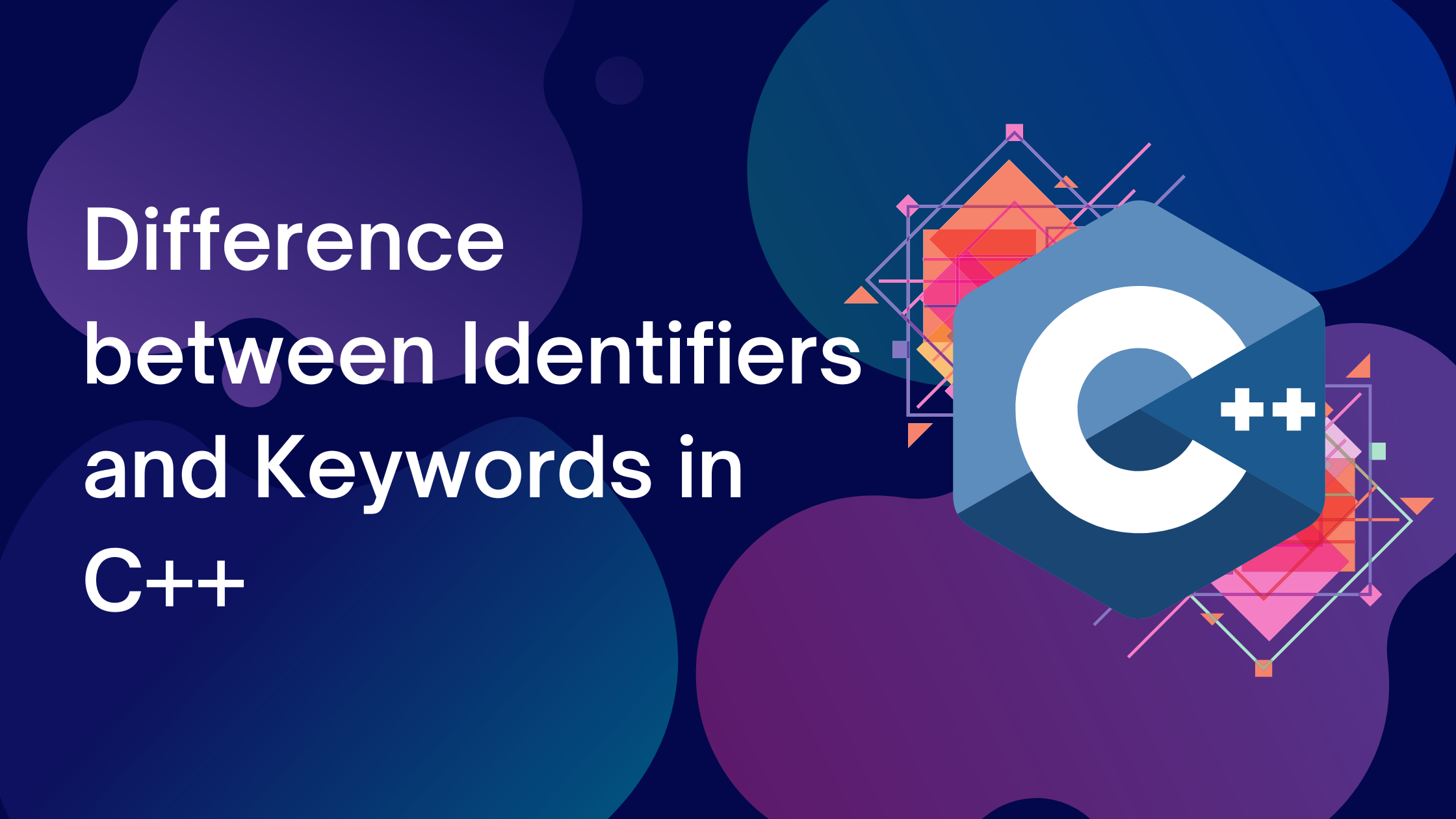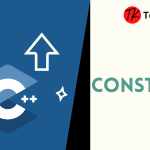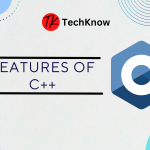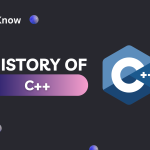Identifiers and keywords are basic building blocks that make up the C++ language. It is essential to comprehend the differences between these two in order to write efficient and error-free code. Both have distinct functions even though they are both necessary for programming.
Table of Contents
What Are Identifiers?
In C++, names established by the programmer to denote variables, functions, arrays, classes, or other user-defined objects are called identifiers. Identifiers are used to give various program elements meaningful names, which facilitates simpler debugging, maintenance, and comprehension.
The goal of identifiers is to assist programmers in labelling and modifying data or objects inside of a program. Proper identifier naming conventions can greatly improve the readability and maintainability of code.
Rules for Defining Identifiers
When naming identifiers, the following guidelines need to be adhered to:
- Start with a letter or underscore: Identifiers must begin with a letter (A-Z or a-z) or an underscore (
_), but they cannot start with a digit.- Valid: totalSum, _temp, Age25
- Invalid: 123name, 3value
- Use of letters, digits, and underscores: After the first character, an identifier can contain letters, digits, and underscores.
- Valid:
student_id,num2,price_of_item - Invalid:
value#1,hello@world
- Valid:
- No spaces or special characters: Identifiers cannot contain spaces or special characters like
@,#, or!.- Invalid:
my variable,x+y
- Invalid:
- Case sensitivity: C++ is case-sensitive, which means that
myVariable,MyVariable, andMYVARIABLEwould be treated as distinct identifiers. - Cannot use keywords: Keywords (which we will discuss shortly) are reserved by C++ for specific functions, so they cannot be used as identifiers.
- Choose meaningful names: Although not a rule, it is recommended to use descriptive identifiers that explain their purpose. For example, using
age_of_studentis better thanaortemp.
Examples of Identifiers in C++
int age = 25; // 'age' is an identifier
float price = 49.99; // 'price' is an identifier
void calculateTotal() { // 'calculateTotal' is an identifier
// code here
}In the above example, age, price, and calculateTotal are all identifiers created by the programmer to name variables and a function.
What Are Keywords in C++?
Reserved words with predetermined, precise meanings in the C++ language are called keywords. These keywords cannot be used for any other purpose, such as naming variables, functions, or classes, as they are an essential component of the syntax of the C++ language. In addition to enabling features like conditional branching, object-oriented programming, and looping, keywords aid in defining the structure of C++ programs.
Common Keywords in C++
Some commonly used C++ keywords include:
- Control flow:
if,else,for,while,switch,case,break,continue - Data types:
int,float,double,char,bool - Object-oriented programming:
class,public,private,protected,this - Memory management:
new,delete,sizeof - Other:
return,void,namespace,static,extern,volatile
Example of Keyword Usage in C++
if (age >= 18) {
cout << "You are eligible to vote." << endl;
} else {
cout << "You are not eligible to vote." << endl;
}The program flow in this example is managed via the C++ keywords if and else. They specify which code blocks the program should run based on whether the condition is satisfied.
Learn on Youtube:
Keywords and Identifiers
Importance of Keywords
A C++ program’s structure and operation depend heavily on its keywords. They give the C++ compiler access to a specified, fixed set of actions and rules. Keywords cannot be used as identifiers since they have unique meanings. For instance, since int is a term that defines an integer data type, using it as the name of a variable would result in an error.
Key Differences
Now that we understand what identifiers and keywords are, let’s compare them in more detail:
| Aspect | Identifiers | Keywords |
| Definition | User-defined names for variables, functions, classes, etc. | Predefined reserved words in C++ with fixed meanings |
| Purpose | Label data and entities in the program | Control the structure and flow of the program |
| Creation | Created by the programmer | Defined by the C++ language |
| Flexibility | Can be freely chosen following naming rules | Cannot be modified or redefined |
| Number | Infinite, as many as needed by the programmer | Fixed and finite set of keywords |
| Examples | totalMarks, calculateSalary, Person | if, else, for, class, return |
| Use as Names | Can be used for variables, functions, classes, etc. | Cannot be used as identifiers |
| Case Sensitivity | Yes, identifiers are case-sensitive | Keywords are always lowercase in C++ |
| Meaning | No inherent meaning—meaning is provided by the programmer | Have a predefined, specific meaning in C++ |
Best Practices for Using Identifiers and Keywords
While it’s crucial to recognise the distinction between identifiers and keywords, using them effectively can also improve the readability and maintainability of your code. The following are some recommended procedures:
For Identifiers:
- Use meaningful names: Steer clear of single-character identifiers (such as an or b) unless necessary, such as in loops (e.g., i in for loops). Instead, use names like studentName or totalScore that explain the purpose of the identifier.
- Follow naming conventions: it’s common practice to use camelCase for variable and function names (
calculateTotal,numberOfStudents) and PascalCase for class names (EmployeeRecord,StudentProfile). - Be consistent: Maintaining uniformity in naming standards facilitates reading and comprehending your code for future developers as well as for you.
For Keywords:
- Never use keywords as identifiers: The keyword’s meaning is fixed. If you use them for any other reason, a compilation fault will occur.
- Understand the purpose of each keyword: Learn the functions of keywords, especially while you are just learning the language, so you can utilise them appropriately to manage memory, program flow, and other aspects of the language.
Conclusion
To sum up, identifiers and keywords have important but different functions in C++ programming. While keywords are reserved terms that regulate the structure and operation of the program, identifiers are user-defined names for variables, functions, and other objects. The readability and clarity of your code can be enhanced by the appropriate use of identifiers, and the grammatical correctness and proper usage of keywords guarantee that your program operates as intended.
Learn More:
C++ Tokens










